The Importance Of Proper Wine Storage
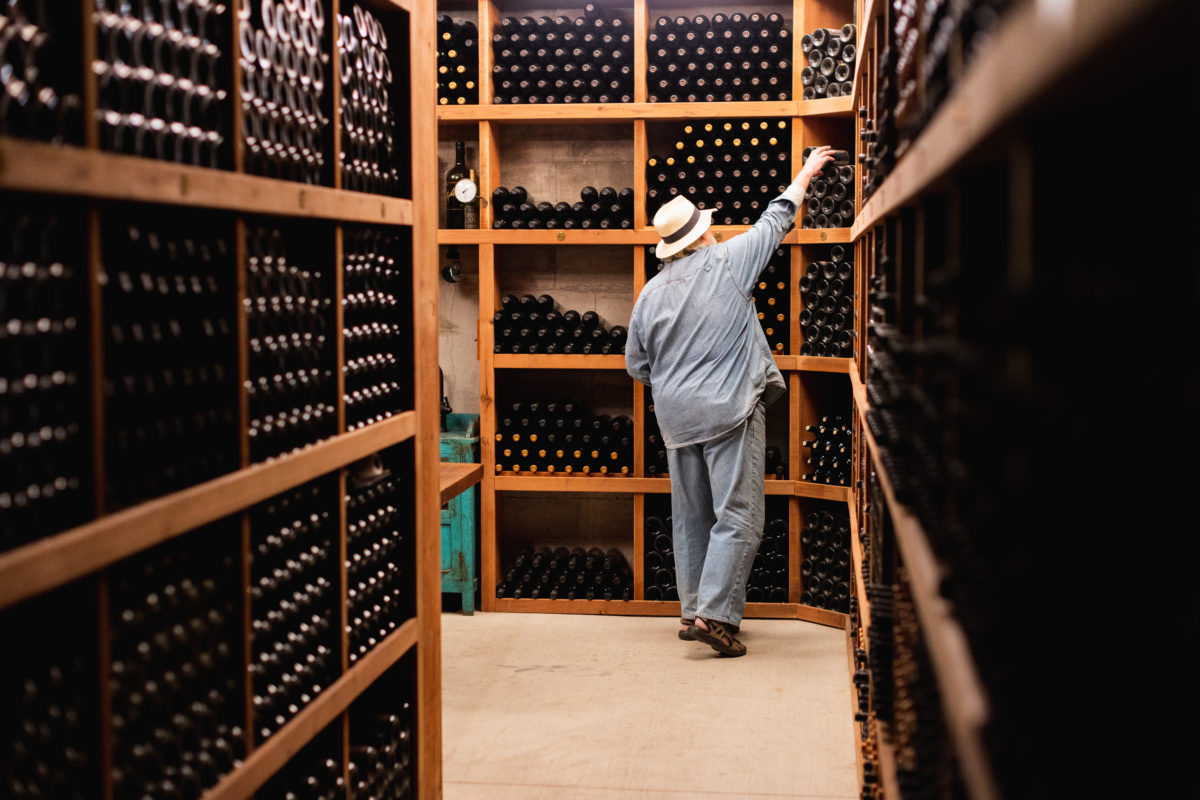
Proper wine storage is crucial for preserving the quality, taste, and longevity of your favorite wines. Wine is a delicate drink that can easily be affected by external conditions such as temperature, humidity, light, and air exposure. By storing your wine correctly, you can ensure that it matures and ages gracefully, enhancing its flavors and aromas. Additionally, proper wine storage helps to prevent spoilage, oxidation, and deterioration of the wine. Investing in the right storage methods and adhering to the recommended conditions can significantly enhance your wine-drinking experience.
Benefits Of Proper Wine Storage
Proper wine storage offers several benefits for wine enthusiasts. First and foremost, it preserves the quality and taste of the wine, allowing it to age gracefully and develop complex flavors and aromas. It also prevents spoilage, oxidation, and deterioration of the wine, ensuring that each bottle retains its integrity. Additionally, proper storage maintains the value of the wine collection, as well-preserved bottles are highly sought after by collectors. Investing in the right storage methods and adhering to the recommended conditions ultimately enhances the overall wine-drinking experience.
Factors Affecting Wine Quality And Taste
Several factors can significantly affect the quality and taste of wine. Temperature fluctuations, exposure to light, and improper humidity levels can all have a detrimental impact on the wine. Heat can speed up the aging process, leading to premature oxidation and a loss of flavors. Excessive exposure to light can cause chemical reactions in the wine, resulting in a “light-struck” or “skunky” taste. Inadequate humidity levels can dry out the cork, leading to a higher risk of oxidation. It is crucial to ensure that these factors are properly controlled and maintained to preserve the integrity and deliciousness of the wine.
Ideal Wine Storage Conditions
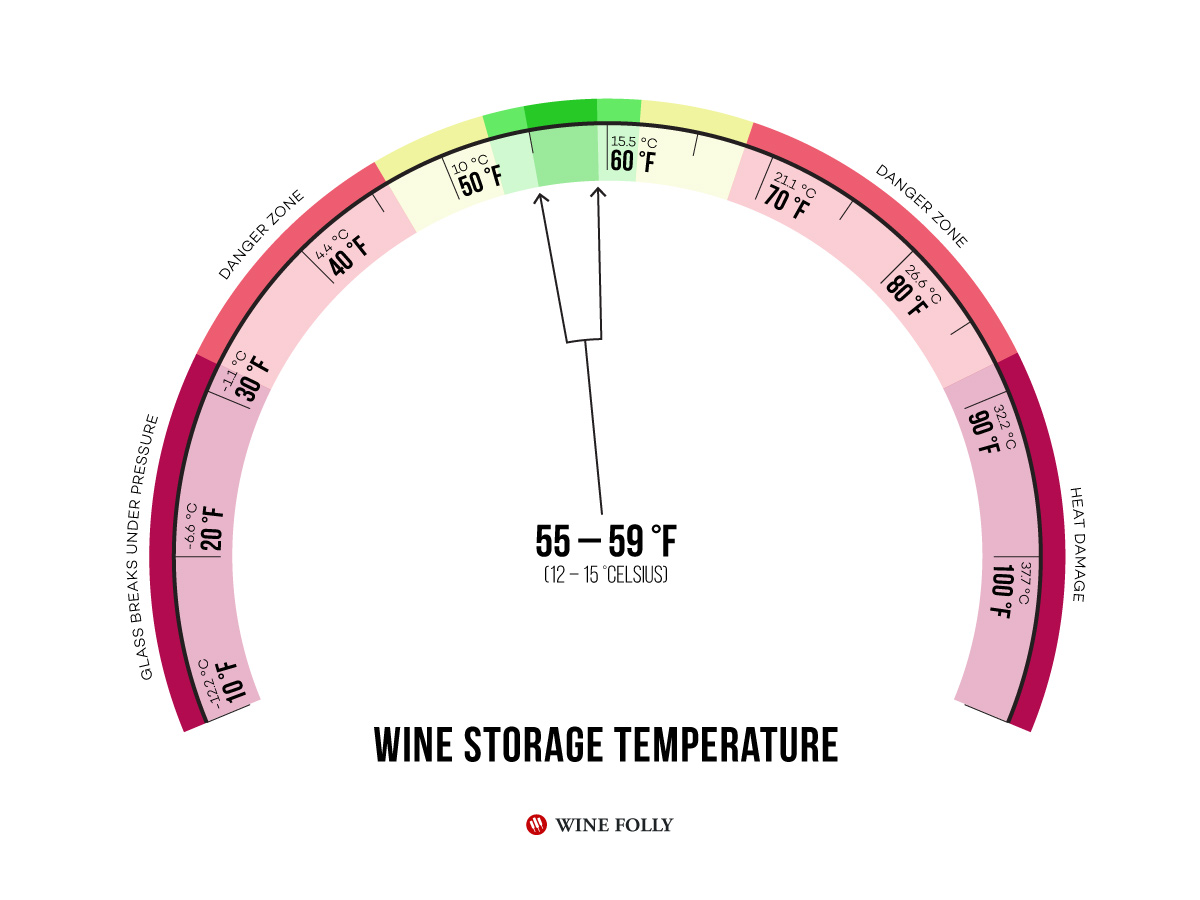
To ensure that wine maintains its quality and taste, it is crucial to store it under ideal conditions. The optimal temperature for wine storage is between 45°F and 65°F (7°C and 18°C), with a consistent temperature being preferred. Humidity levels should be kept between 50% and 70%, as too much humidity can promote mold growth, while too little can cause corks to dry out. It is also essential to store wine in a dark environment to prevent light exposure, which can damage the wine. Furthermore, wine should be stored in a vibration-free area to prevent disturbance that could negatively impact its aging process.
Optimal Temperature And Humidity Levels
To ensure the preservation of wine quality, it is crucial to store it at optimal temperature and humidity levels. The ideal temperature range for wine storage is between 45°F and 65°F (7°C and 18°C). It is important to maintain a consistent temperature within this range to prevent wine from spoiling or aging too quickly. In terms of humidity, it is recommended to keep levels between 50% and 70%. This helps to prevent drying out of corks and maintains the integrity of the wine. By storing wine under these optimal conditions, one can ensure that it will age properly and retain its desired taste and characteristics.
Proper Lighting And Ventilation For Wine Storage
Proper lighting and ventilation are key factors to consider when storing wine. Excessive light can harm the quality of wine by altering its chemical compounds. It is advisable to store wine in a dark cellar, wine cooler, or other storage areas that limit exposure to light. Additionally, good ventilation is important to maintain optimal air circulation and prevent the buildup of odors that can affect the aroma and taste of wine. By ensuring appropriate lighting and ventilation, wine enthusiasts can preserve the quality and flavor of their collection for years to come.
Refrigerating Wine: Pros And Cons
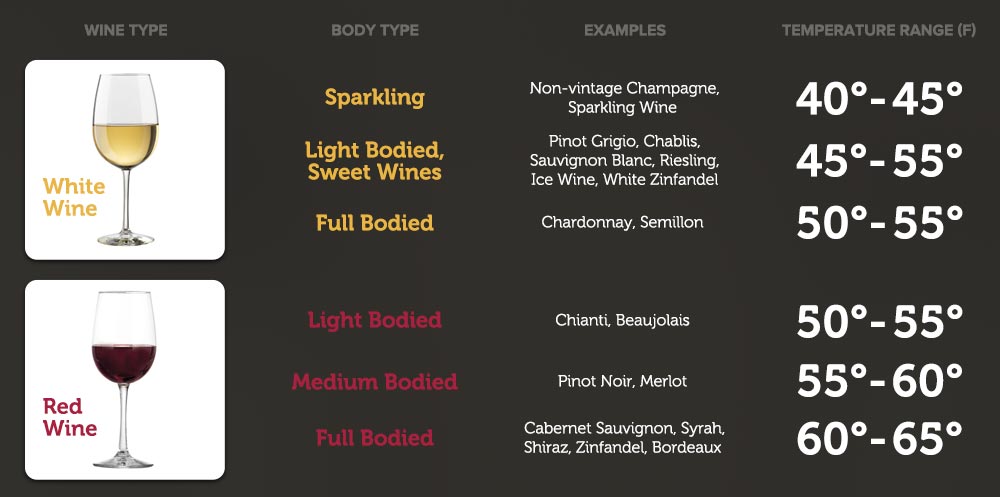
Refrigerating wine has its advantages and disadvantages. Here are the pros and cons to consider:
Pros:
- Temperature Control: Refrigerating wine allows you to easily maintain a consistent and cool temperature, which is essential for preserving the wine’s flavor and aroma.
- Convenient Chilling: Refrigerating wine makes it convenient to serve chilled wine at the ideal temperature, especially for white and sparkling wines.
- Extended Storage: If you only plan on storing the wine for a short period, refrigeration can be a suitable option to keep it in good condition.
Cons:
- Limited Capacity: Refrigerators may have limited space, making it challenging to store a large wine collection.
- Vibrations: The constant vibrations from the refrigerator can potentially disturb the sediment in older wines, affecting their quality.
- Lack of Humidity Control: Refrigerators have lower humidity levels, which can result in the corks drying out and allowing air to enter the bottle.
Ultimately, refrigerating wine can be a convenient option for short-term storage and chilling purposes. However, for long-term storage and preserving the wine’s quality, alternative storage methods may be more suitable.
Advantages Of Refrigerating Wine
Refrigerating wine offers several advantages. First and foremost, it allows for precise temperature control, ensuring that the wine is maintained at the ideal temperature for preservation. This helps to preserve the flavor, aroma, and overall quality of the wine. Additionally, refrigeration makes it convenient to serve chilled wine, especially for white and sparkling varieties. It’s also a suitable option for short-term storage, ensuring that the wine stays in good condition until it’s ready to be consumed. By refrigerating wine, you can enjoy the benefits of proper storage and serve your wine at its best.
Drawbacks Of Storing Wine In The Refrigerator
Storing wine in the refrigerator has its drawbacks. The low humidity levels in the fridge can cause the corks to dry out, leading to oxidation and spoilage of the wine. Additionally, the constant temperature fluctuations when opening and closing the refrigerator door can negatively affect the wine’s flavor and aroma. The fridge may also be overcrowded, making it difficult to properly organize and store the wine bottles. Lastly, the odor from other food items in the refrigerator can permeate the wine and alter its taste. It is important to consider these drawbacks before using the refrigerator as a long-term storage solution for your wine.
Alternative Wine Storage Methods
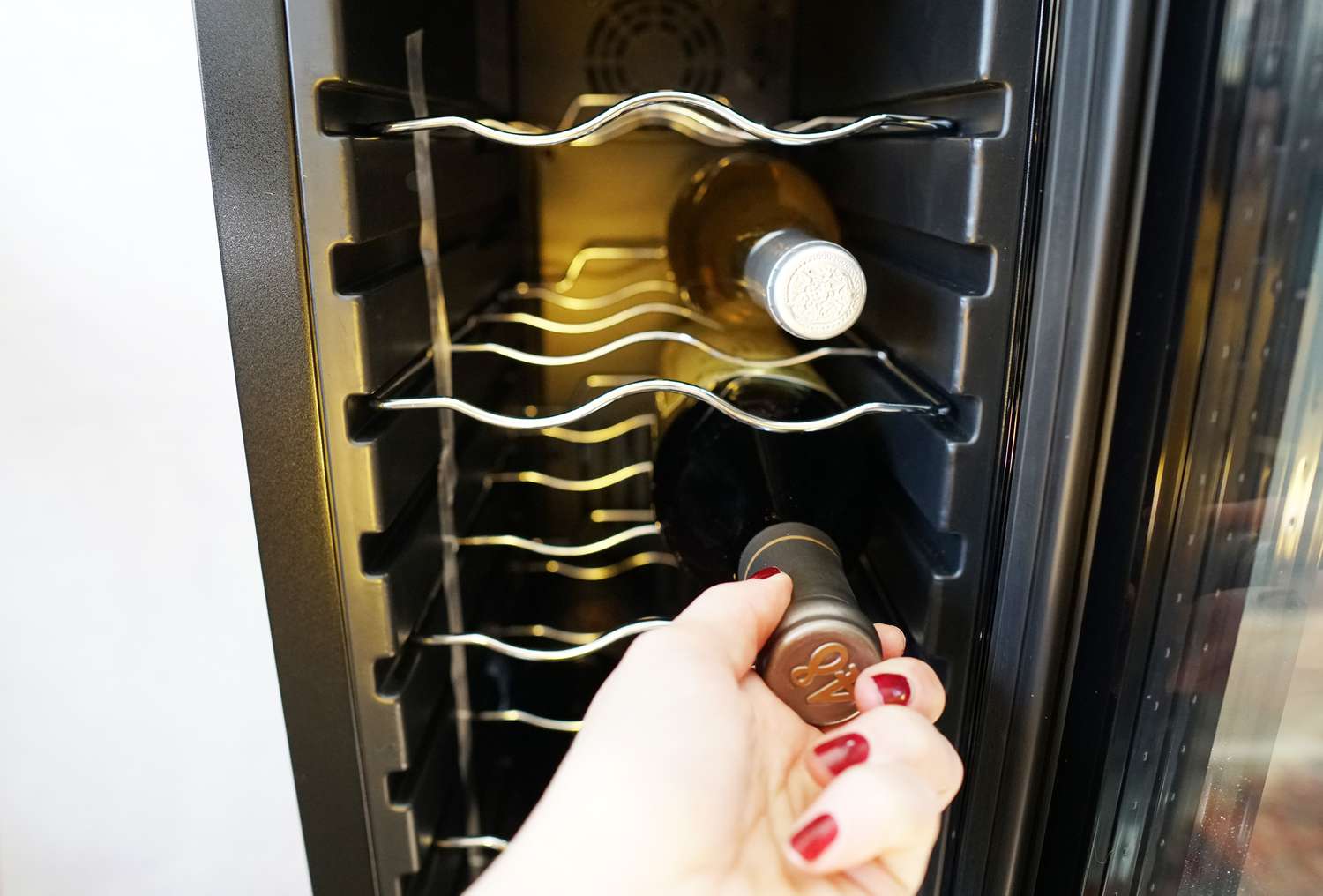
Alternative wine storage methods offer options for those who do not have access to a cool basement or temperature-controlled room. Wine coolers and wine cabinets provide a convenient and compact storage solution, with the ability to regulate temperature and humidity levels. Underground cellars and wine storage racks offer a more traditional approach, creating a natural environment for wine aging. These options can be customized to fit different spaces and budgets, ensuring that your wine is stored properly and protected from external factors that could compromise its quality and taste. Remember to consider the specific needs of your wine collection when choosing an alternative storage method.
Wine Coolers And Wine Cabinets
Wine coolers and wine cabinets are alternative storage methods that offer convenience and control over temperature and humidity levels. Wine coolers are compact and provide the perfect chilling temperature for wines that are meant to be served soon. On the other hand, wine cabinets are equipped with sophisticated cooling units that maintain consistent temperatures and are ideal for aging fine wines over longer periods. While coolers may have fewer style and racking options, wine cabinets offer a range of customization possibilities. Choosing between a wine cooler or cabinet depends on your specific storage needs and budget.
Underground Cellars And Wine Storage Racks
Underground cellars and wine storage racks are classic methods of storing wine that provide optimal conditions for long-term aging. Underground cellars offer natural insulation and consistent temperature and humidity levels, making them ideal for preserving wine quality. They also provide protection from light and vibration. Wine storage racks, on the other hand, are practical options for those without access to underground cellars. These racks are designed to hold wine bottles horizontally, allowing for proper cork contact and preventing oxidation. Both underground cellars and wine storage racks are effective solutions for ensuring the longevity and quality of your wines.
Tips For Storing Wine Properly
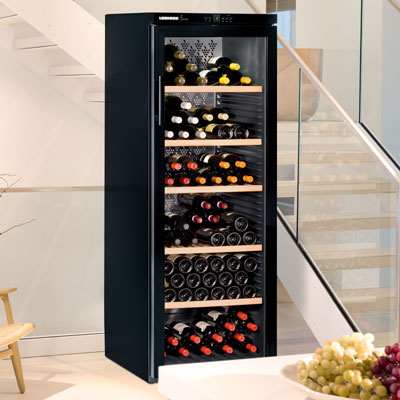
When it comes to storing wine properly, there are a few key tips to keep in mind. Firstly, choose the right storage location that provides the ideal temperature and humidity levels. It’s important to organize and label your wine bottles to easily identify and access them. Additionally, avoid placing your wine near strong odors or in areas with excessive vibration. Lastly, regularly check and maintain your wine storage conditions to ensure the longevity and quality of your wines. By following these tips, you can enjoy your wines at their best for years to come.
Choosing The Right Wine Storage Location
When it comes to choosing the right wine storage location, it is important to consider certain factors. Firstly, opt for a cool and dark place, such as a basement or a garage, where the temperature remains stable. Avoid areas with strong odors, as they can penetrate the wine bottles and affect the taste. Additionally, consider a cupboard or pantry if you want to protect your bottles from light. It is crucial to create a consistent environment for your wine collection to preserve its quality and flavor over time.
Organizing And Labeling Wine Bottles
Organizing and labeling wine bottles is an essential step in proper wine storage. By keeping your bottles organized, you can easily locate and access the wine you want to enjoy. One approach to organizing is to group your wines by type or region, making it simple to find a specific bottle when needed. Additionally, labeling your wine bottles with relevant information such as the date purchased, grape variety, or tasting notes can provide helpful insights for future reference. This practice ensures that you can keep track of your wine collection and select the perfect bottle for any occasion.
Conclusion
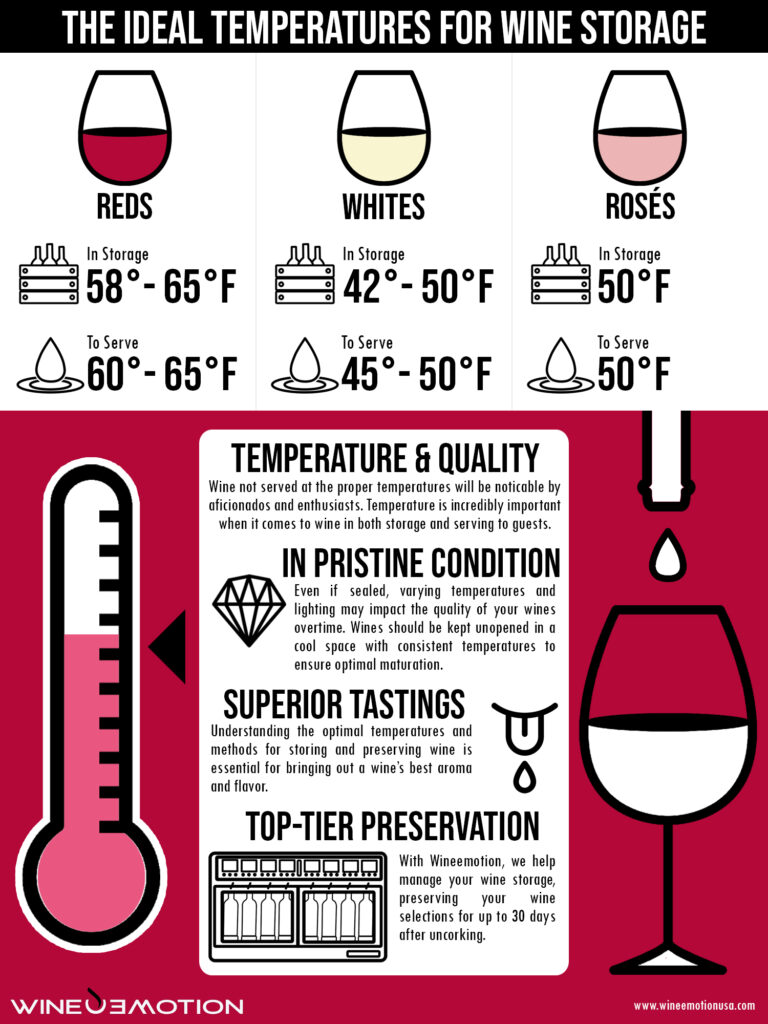
In conclusion, proper wine storage is crucial for maintaining the quality and taste of your wine. By storing it at the right temperature, away from light, and in a stable environment, you can ensure that your wine will be enjoyed to its fullest potential. While refrigeration can be a convenient option, it is important to consider the specific requirements of each type of wine. Remember to label and organize your wine bottles to easily locate and access them. Following these best practices will help preserve the integrity of your wine collection and enhance your overall wine-drinking experience.
Best Practices For Wine Storage
When it comes to storing wine properly, there are a few best practices to keep in mind. First and foremost, it is essential to maintain the right temperature and humidity levels. Aim for a consistent temperature between 45 to 65 degrees Fahrenheit (7 to 18 degrees Celsius) and a humidity level of around 70%. Additionally, store your wine bottles horizontally to keep the cork moist and prevent air from seeping in. Avoid significant temperature fluctuations and keep your wine away from light and vibration. Finally, regularly check and rotate your wine collection to ensure even aging. By following these best practices, you can ensure that your wine is stored in optimal conditions and will be enjoyed at its best.
Common Myths About Refrigerating Wine
There are a few common misconceptions when it comes to refrigerating wine. Let’s debunk them:
- Myth: All wines should be refrigerated.
Fact: While it’s true that white, rosé, and sparkling wines are best served chilled, not all wines should be stored in the refrigerator long-term.
- Myth: Refrigeration enhances the aging process of wine.
Fact: Wine aging requires a specific temperature range, and refrigeration can be too cold for long-term aging, affecting the development of complex flavors.
- Myth: Any refrigerator is suitable for wine storage.
Fact: Regular kitchen refrigerators are not designed to maintain the ideal temperature and humidity levels needed for proper wine storage.
By debunking these common myths, you can ensure that your wine is stored and enjoyed at its best.
FAQ About Proper Wine Storage
Q: Should wine be refrigerated?
A: Yes, some wines are best stored in a refrigerator, particularly white wines and rosés, as well as sparkling wines.
Q: What about red wines?
A: Red wines are generally not recommended to be stored in a refrigerator unless they are already opened and need to be preserved for a short period.
Q: How should wine be stored in a refrigerator?
A: Store wine in a dark and vibration-free area of the refrigerator, away from strong odors and with the bottles lying on their sides to keep the cork moist.
Q: Is it necessary to refrigerate all types of wine?
A: Not all wines need to be refrigerated. Some high-quality red wines and aged wines are best stored in a cooler, dark place with a consistent temperature.
Q: How long can wine be stored in a refrigerator?
A: Wine can be stored in a refrigerator for a few weeks to a few months, depending on the type of wine and the ideal storage conditions. It’s best to check with the specific wine producer’s recommendations.
Q: Can wine be stored at room temperature?
A: Yes, wines can be stored at room temperature if it’s a cool, dark place with a consistent temperature, away from light, heat, and temperature fluctuations.
